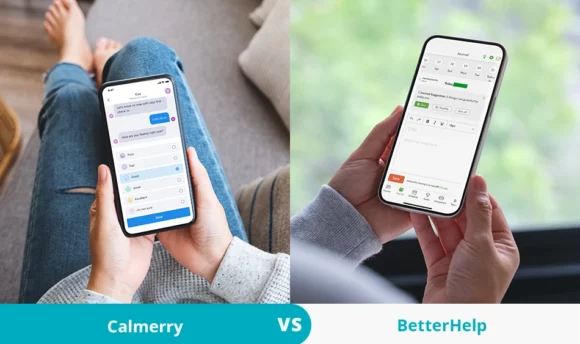Dating Someone With BPD: Things You Should Know
Being in a relationship with someone who has BPD could be a difficult journey for some. Not knowing how to act around them is hard, but there are ways you can support your partner. We detail 7 things you should know about borderline personality disorder and why navigating the relationship can be challenging.

Borderline personality disorder (BPD) impacts the way someone thinks and feels.
They could experience intense mood changes or paranoia that damage their mental health. Of course, not having a good support system in place makes things worse. If you’re dating someone with BPD, you may already understand the symptoms.
Being in a relationship with this person could be challenging. You have to witness their mood swings and impulsive behaviors. Luckily, there are effective ways you can support your partner and maintain a healthy relationship.
In this article, you’ll learn 7 things about dating someone with BPD.
Dating Someone With BPD? There Are 7 Things to Know
Some people might believe that BPD causes unstable relationships, but that’s not always the case. You can date someone with borderline personality disorder and still have a good romantic relationship, even when times get mentally challenging.
Here are 7 things you should know about BPD in a relationship:
#1 Learn about BPD
You should take the time to learn about borderline personality disorder. Spend a few days researching BPD symptoms and how to support your partner. This knowledge makes it easier to pick up on outbursts, suicidal behaviors, and potential self-harm.
People appreciate it when loved ones make that effort. Those with BPD tend to feel lost when others can’t relate to their problems. So, even just learning about proper treatment could help you encourage responsibility in your partner rather than standing back.
#2 Try to communicate with your partner better
Communication isn’t always straightforward in romantic relationships.
There may be times your emotions take over. Someone with BPD will also experience mood swings that could turn into arguments. To avoid making situations worse, listen actively to what your partner is saying and learn to show empathy at the right moment.
For example, if they’re dealing with paranoid thoughts, let them express concerns. They might need to get everything out of their system. You can learn to separate facts from feelings by telling your partner that your relationship is perfectly healthy and strong.
#3 Do not blame yourself
You should not blame yourself when others are dealing with mental disorders. There is only so much you can do for someone with BPD. Remember that healthy relationships take time to build, especially when both you and your partner need to trust each other.
Of course, some days will be more difficult than others. You might accidentally say something that triggers your partner for a while. Adjusting to their mindset and behavior won’t be a simple task in a relationship, so don’t take the blame for trying your best.
#4 Set limits and boundaries
Your partner might not understand your personal boundaries.
Communicating what you’re comfortable with helps everyone to remain calm during sudden arguments. Start a detailed conversation about your limitations when it comes to your partner’s erratic actions, suicidal behavior, or unstable sense of morals.
Not being afraid to say no can also reduce anxiety and depression symptoms. You don’t have to do anything that makes you uncomfortable. Forcing yourself to be happy or accept certain behaviors from your partner will only damage your mental health.
#5 Remember that it takes time
Building a healthy environment for someone with BPD won’t be quick. Getting to know each other’s boundaries will take plenty of time. Of course, it might be tempting to rush the process, but focus your energy on creating an honest, comfortable, and safe space.
Think about the future and what you want to achieve in the relationship. This may be regular communication, more alone time, and online therapy. It just depends on what your partner is comfortable with as well, so always take their needs into account.
#6 Take care of your mental well-being
Even though you want to be there for your partner, you should also be there for yourself. Sometimes, it’s easy to ignore your own personal needs, but this can only damage the relationship. Take some time out when you need it, and do the things you enjoy most.
You could go for a long-distance run to clear your mind or practice stretching when you feel low. Being cooped up inside the house won’t do you any good. Communicate with your partner that you need to go outside more often to support your own well-being.
Going for morning walks can be a great way of relieving stress. A study found that exercise is great for improving your well-being and encouraging positive thoughts throughout the day.
#7 Be supportive
You should always be supportive of your partner. They need a strong support system in times of chronic stress to prevent symptoms from getting worse. You can let them know you’re there for them or arrange some fun plans to boost their overall well-being.
Some other things you can do include asking questions about their feelings, giving them time to talk, offering your undivided attention, and providing physical affection. A person with borderline personality disorder will appreciate constant loving support.
What Is Borderline Personality Disorder?
Borderline personality disorder is a mental health condition that severely impacts the way someone manages emotions. That person may experience anger outbursts, suicidal thought processes, and sad thoughts of being left behind.
People with BPD usually suffer from their thoughts and feelings the most. They could think negatively of themselves and those around them. A fear of abandonment is also a prominent symptom, meaning they fear loved ones leaving them for a negative reason.
Not everyone knows they have this disorder. Sometimes, it can develop through childhood trauma or neglect growing up. A lack of love and support during this time subconsciously changes the way someone thinks and responds to people around them.
Studies also show that genetic, environmental, and cognitive factors also play a role in developing borderline personality disorder. For example, if one parent has this disorder, their children are more likely to pick up certain attitudes and impulsive behaviors.
Symptoms of BPD
Your partner’s symptoms might differ from other people. It just depends on their mental state, environment, and genetic factors. Dating someone with borderline personality disorder can be a challenging journey, so always find support when you need it.
Here are the common symptoms of BPD:
- Fear of abandonment
- Self-destructive behaviors
- Explosive anger issues
- Severe mood changes
- Reckless driving
- Suicidal threats
- Constant self-blame
- Dissociative episodes
Why Dating Someone With BPD Might Be Hard
Dating someone with borderline personality disorder can be hard due to your partner’s mood swings, impulsive behaviors, and intense fear of abandonment. That said, BPD relationships aren’t always challenging or difficult to manage.
Getting into a romantic relationship with someone who has BPD might be an emotional journey. There may be times you argue or struggle to understand their behavior. It’s important to note that not everyone will struggle to overcome the BPD diagnosis.
You just need to be there for your partner and remind them they aren’t a loser for having bad thoughts. Build a strong support network to protect the relationship, which could involve family members, close friends, and even some of their most reliable friends.
Certain days will be tougher than others. Sometimes, people with BPD spend weeks in the same negative mindset to avoid facing their mental illness. The strength of your relationship depends on your partner’s behaviors, thoughts, actions, and feelings.
Just make sure to seek professional help when you need it. A clinical psychologist may suggest therapy techniques to help your partner cope better. Dialectical behavioral therapy is one option for people who need to manage their emotions effectively.
FAQs
Yes, people with borderline personality disorder can love others and can even have their favorite person. The relationship might be harder, but that doesn’t mean they can’t experience romance. You just have to make certain adjustments in the relationship when preventing arguments and negativity.
Common signs of BPD comprise a fear of abandonment, intense emotions, self-harm, destructive behaviors, suicidal thoughts, and explosive anger. Consider talking to your partner about how they feel and ways you could support their mental health.
You should ask your partner to learn about BPD to make things easier. It’s also worth mentioning that this disorder impacts the way you think and feel about yourself. A bad mental state causes problems in everyday life that make emotional pain worse.
A Word From a Psychologist
Borderline personality disorder can really impact someone’s mental health. They can get chronic feelings of emptiness and extreme mood swings. There are several BPD symptoms that make an appearance at any point during healthy romantic relationships.
Just remember that falling in love with someone who has BPD doesn’t have to be a scary or intimidating experience. You can negotiate, set boundaries, and be supportive. A partner recently diagnosed with BPD may need that extra support in times of stress.
One thing to note is that your health is important too. It’s easy to neglect your own personal needs when looking after someone else. Never ignore what you’re feeling or thinking, and always seek help, especially from people you trust the most.
You can always talk to a mental health professional about dating someone with borderline personality disorder. They may offer expert advice on couples therapy, communication skills, or ways to handle your partner’s spontaneous outbursts.
Conclusion
So, how does BPD affect romantic relationships?
BPD relationships may be challenging, but that doesn’t mean you can’t support your partner. You can do small things to stay happy in a romantic relationship. Learning about BPD while taking care of your mental and physical health is important.
You can also try any journaling app to document your own feelings and find deep breathing techniques. The mood journal is designed to absorb negative thoughts. Bottling emotions up is not a good way of staying positive in rocky relationship moments.

















































 Select your language:
Select your language: 








